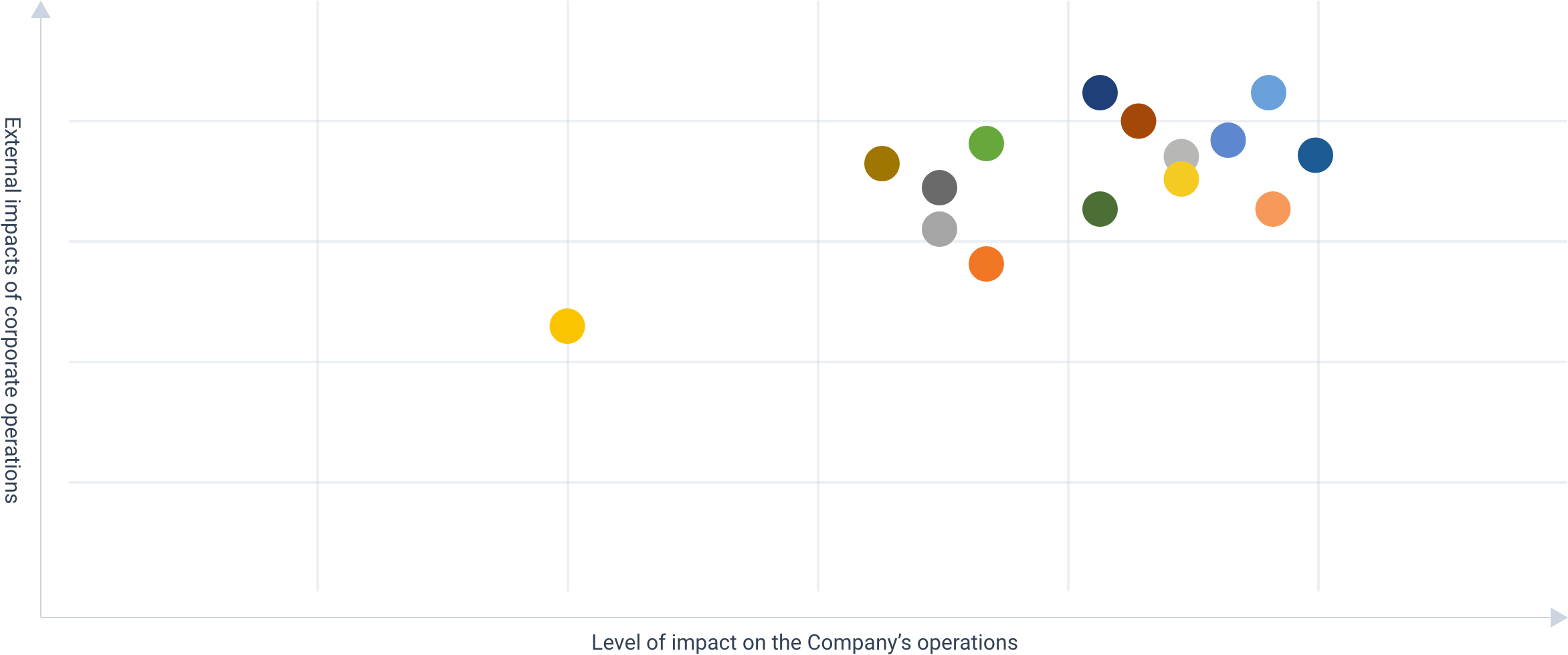Adhering AA1000 SES (AA1000 Stakeholder Engagement Standard), UfiSpace identified 7 main stakeholder categories: government agencies, shareholders/investors, customers, employees, suppliers, media, and local communities (including NPOs). Engagement with the stakeholders were conducted through diverse channels, including the distribution of level of concern questionnaires, to make sure that the listed sustainability issues were valued by the stakeholders.
| Stakeholders | Significance to UfiSpace | Issues of Concern | Communication Channel/Frequency | Contact Person/Contact Information | 2024 Communication Performance |
|---|---|---|---|---|---|
| Government Agencies | Government agencies supervise and audit the Company's compliance practices for various laws and regulations. UfiSpace strictly adheres to government laws and regulations, and actively keeps in line with governmental policies. |
|
|
|
|
| Shareholders/Investors | The support of shareholders and investors drives the Company's steady growth. UfiSpace treats all shareholders fairly and protects their rights. |
|
|
|
|
| Customers | UfiSpace places importance on customers' needs and establishes win-win service partnerships with customers to create value. |
|
|
|
|
| Employees | Talents are UfiSpace's important asset and the key to corporate competitiveness. We are committed to providing a workplace that ensures the physical and mental health and diverse development of employees, so that they can achieve personal accomplishments in work. |
|
|
|
|
| Suppliers | Suppliers are important partners to UfiSpace not only in operations but also in realizing the industry's sustainable development. |
|
|
|
|
| Media | The advice and suggestions made by the media on behalf of the general public to the Company will inspire UfiSpace to make continuous progress. |
|
|
|
|
| Local Communities (Including NPO) | UfiSpace aims to bring a positive impact to society and create a common good with local communities and non-profit organizations. |
|
|
|
|
Materiality analysis is an important cornerstone for UfiSpace to compile its sustainability report and formulate its sustainability policies. We assess the impacts of the sustainability issues on our corporate operations as well as the economy, environment and human rights according to the GRI methodology, identify material topics based on double materiality assessment, formulate relevant management policies accordingly and review the implementation on a regular basis. At the same time, we take the initiative to showcase the Company’s sustainable development progress to stakeholders so as to move towards a future featuring the common good for all together.

Climate Change
Sustainable Operating Environment (Green Office)
Biodiversity (Ecological Conservation)
Sustainable Supply Chain
Innovative R&D and Green Products
Human Rights Protection
Operational Performance
Remuneration and Benefits
Diversity, Equity and Inclusion in Workplace
Occupational Safety and Employee Health
Talent Cultivation
Customer Service
Participation in Public Welfare
Ethics and Integrity
Information Security and Trade Secret Protection
UfiSpace selected 15 sustainability issues by referring to international sustainability norms and standards, sustainability ratings, stakeholders’ expectations, and global sustainability trends, and further conducted a stakeholder questionnaire survey to understand stakeholders’ level of concern about the sustainability issues. The preparation of this report involves distributing questionnaires to various stakeholders, with 127 copies retrieved. All sustainability issues were of high concern to stakeholders; based on this fact, the Sustainable Development Committee assessed the internal and external impacts of the 15 sustainability issues, and eventually identified 11 material topics (including 6 economic and governance issues, 1 environmental issue, and 4 social issues) through double materiality assessment.